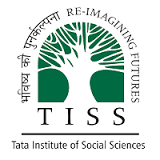How can I access the course on a smartphone? (मैं स्मार्टफोन पर कोर्स कैसे एक्सेस कर सकता हूं?)
You can access the course via TISSx app on your smartphone. You can install the app from Playstore. (आप अपने स्मार्टफोन पर TISSx ऐप के माध्यम से पाठ्यक्रम तक पहुंच सकते हैं। आप Play Store से ऐप इंस्टॉल कर सकते हैं।)
Whom do I contact for further information? (अधिक जानकारी के लिए मैं किससे संपर्क करूँ?)
Write in to cete.stp@clixindia.org (आप पाठ्यक्रम से संबंधित किसी भी प्रश्न के लिए rtict@clixindia.org पर लिख सकते हैं।)
What web browser should I use? (मुझे किस वेब ब्राउज़र का उपयोग करना चाहिए?)
The Open edX platform works best with current versions of Chrome, Firefox or Safari, or with Internet Explorer version 9 and above. (ओपन एडएक्स प्लेटफॉर्म क्रोम, फायरफॉक्स या सफारी के मौजूदा संस्करणों के साथ या इंटरनेट एक्सप्लोरर संस्करण 9 और इसके बाद के संस्करण के साथ सबसे अच्छा काम करता है।)
See our list of supported browsers for the most up-to-date information.(अधिक जानकारी के लिए हमारी list of supported browsers देखें। )
Course Card Credit: The School of Athens by Raphael (1483–1520), Wikimedia.


